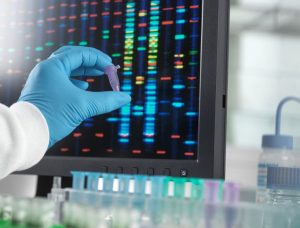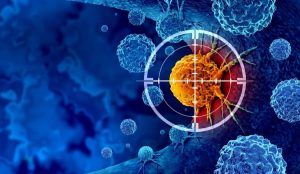
Recognizing Cancer Misinformation: Expert Insights from 2 RCCA Oncologists
“Consider the source.” It’s good advice for dealing with the sting of criticism or the allure of gossip, but two oncologists say it’s even better
HIPAA Alert: Potential Data Breach Learn More
Questions on Oncology, Hematology and/or Infusion Clinical Services due to COVID-19 Crisis – CALL 833-698-1623
Important Information for Our Patients Regarding the Coronavirus.
RCCA Providing Area Cancer Patients with Access to Care During Coronavirus Outbreak
RCCA Offering Patients Virtual Visits During Coronavirus Pandemic
For many patients, the most difficult part of battling cancer is coping with the side effects of cancer treatments. Many treatments, such as chemotherapy, radiation therapy, biological therapy, bone marrow transplant and surgery, can pose significant challenges.
From fatigue and emotional stress to mouth sores, skin changes and hair loss, treatment side effects can be unpleasant to say the least. But there are many ways to manage — and even lessen — their impact on you.
Feeling extremely tired, weak, “heavy,” run-down and without energy? This is how many patients describe cancer-related fatigue. And because resting doesn’t always help, it’s often one of the most difficult side effects to cope with. Here are a few ways to manage fatigue:
Nausea and vomiting are among the most common side effects of some cancer treatments. Some people feel sick just anticipating their treatment, and many more experience nausea after treatment. Controlling nausea and vomiting will help you feel stronger, not to mention that it will also help you avoid malnutrition and dehydration. There are several ways to cope with and reduce nausea and vomiting, including:
Anemia is a condition in which your body does not have enough red blood cells, which carry oxygen from the lungs to the rest of your body. Without oxygen circulating properly, you can feel tired, short of breath, dizzy or faint. Many people with anemia even experience headaches, rapid heartbeat and/or pale skin. A simple blood test can gauge your red blood cell count. Cancer treatments like chemotherapy and radiation therapy can damage red bone marrow and cause anemia.
Countering the effects of anemia can be achieved through such techniques and treatments as:
We addressed only a few side effects from a long list of potential issues. We know you may be in pain, suffering from mouth or throat problems, or unsure of how to manage anxiety and depression. Whatever you’re facing, RCCA is dedicated to helping you cope. Through our expansive network across New Jersey, Connecticut, Massachusetts and the Washington, DC area, we have the resources to help you fight cancer and the many challenges that come with its treatment. We also provide integrative care to support you in every possible way.
For more information, or to schedule an appointment, call (844) 346-7222. You can also schedule an appointment by calling the RCCA location nearest you.

“Consider the source.” It’s good advice for dealing with the sting of criticism or the allure of gossip, but two oncologists say it’s even better

Biomarker testing is the evaluation of samples of a patient’s tumor, blood, or both to identify the genetic mutations responsible for the development of cancer,

Medical research has made tremendous strides in improving how oncologists understand and treat cancer. One of the most exciting developments is the use of radiopharmaceuticals.

Regional Cancer Care Associates is one of fewer than 200 medical practices in the country selected to participate in the Oncology Care Model (OCM); a recent Medicare initiative aimed at improving care coordination and access to and quality of care for Medicare beneficiaries undergoing chemotherapy treatment.